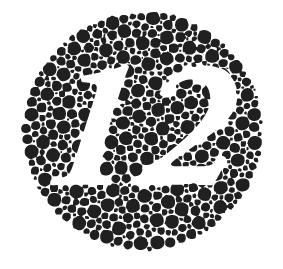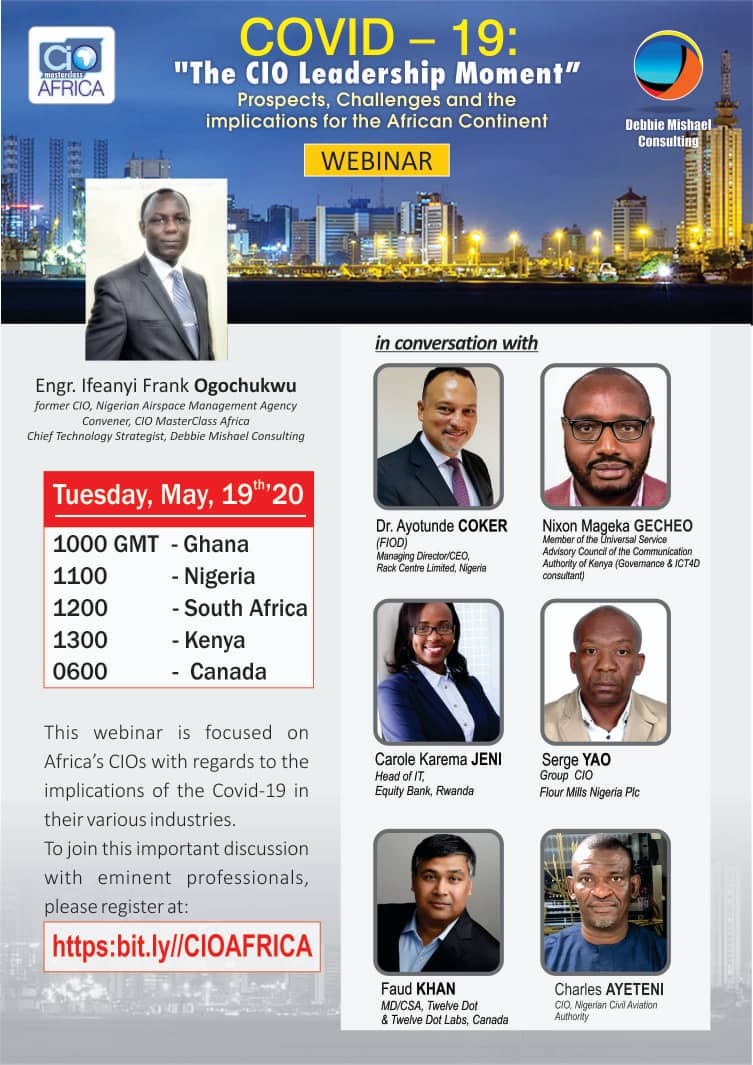CIO Leadership Moment – Session Two
We recently held our 2nd in the series of the CIO Africa MasterClass series to continue our conversation on helping CIOs to share strategies for dealing the COVID-19 shutdown and WFH.
Our keynote was from Dr. Coker of Rack Center Limited who offered the following guidance:
- You need a Business Continuity Plan – This is regardless of the size of your business
- You need a Disaster Recovery Plan – To ensure you restore critical business functions as quickly as possible
- Resilience – A business needs to have a capability to deal with uncertainty, without this situations such as the COVID-19 shutdown will have dramatic impacts your business.
These topic points served as the basis for our discussion and questions, let’s look at some of these topics in depth.
Carole Karema (Equity Bank, Rwanda) built on these topics with examples of how the Rwandan banking system ensured that they were not only able to offer basic services but expanded online services and features for clients and businesses. For businesses impacted by a local and global slowing economy, having a lifeline to help with cash flow and load repayment provides several options to business owners and executives.
Nixon Mageka (Policy Expert, Kenya) also talked about the important of health services and education during these times and how to keep the fabric our family’s health supported for non COVID related illnesses. We have all had to learn to working remotely and that mean having your little ones interrupt meetings to show you something or just needed the attention they deserve. They have no idea why your sitting on the phone all day when they need their stuffy’s that just out of reach on shelf. The are confused why you’re always home and why they can’t go the park or to play with their friends any more. The stress on all everyone is going to have impacts to us all long term. That includes the social isolation that we are all feeling. Our society impacts will be long and somethings will change for ever.
I quickly noted that work from home also really illustrated an issue we are facing in Canada that those with Internet and those from lower income families who don’t have device and possibly internet are being impacted. Those kids are not really accounted for during these outages. Many school boards in Canada scrambled to find both technology and internet to provide these services to those less fortunate.
From a security perspective we need to keep our security hygiene in place as well. This includes; not installing pirated software, having an up to date anti-malware application, not clicking on all emails that might sound urgent, and making sure we have backups of your devices and critical data. While some home users are using private property they devices may still be used to attack the other digital assets of the company. Make sure you know who to contact at your company if you believe you have experiences a cyber issue.
In closing, we had another successful session with some of Africa’s though leaders on technology and business. They shared some key points with attendees on current topics of operating you business under COVID. In the future, we will be expanding our faculty members and courses being offered keep an eye out for these announcements.
I will be providing the link to the session video once available.



